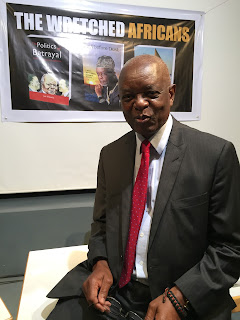I am talking about the recently unveiled Africa-wide passport which was rolled out during the 27th Ordinary Session of the Assembly of the African Union (AU) at Kigali, Rwanda, two weeks ago.
Since the Organization of African Union (OAU), now the AU, was formed in Addis Ababa, Ethiopia in 1963, member countries have been struggling to come up with policies and projects to enhance unity and economic integration. The road has been bumpy but notable successes have been achieved.
Unlike the OAU, which stood on the platform of "non-interference" in the affairs of member countries, the AU, launched in 2002, has used provisions in its Charter to move into troubled spots such as Sudan and Somalia to promote peace and to Kenya and Ivory Coast to quell post-election conflicts.
It has helped strengthen regional bodies like the Economic Community of West Africa (ECOWAS), the East African Community (EAC) and the Southern African Development Community (SADC), and its relentless efforts have bore fruit including reducing substantially the number of coup d'etats in the continent.
The Africa-wide Passport is yet another feather in the cap of the AU. It is a long journey since the pre-independence days when privileged Africans had to use colonial passports, and liberation giants like ANC's Nelson Mandela and SWAPO's Sam Nujoma had to resort to foreign passports to travel around the world to galvanize support for the freedom cause. In fact, Mandela had to use an Ethiopian passport with a nomenclature David Motsamayi to evade the apartheid regime intelligence apparatus.
The Africa passport will open borders and ease communication for people and goods; it will encourage transfer of skills, and remove social and economic barriers that have until now hindered integration. This is in line with the AU's game plan of creating "a continent with seamless borders" by 2063.
However, with free movement of people across borders are challenges that not only must be anticipated but also confronted. The world has changed from what it was fifty years ago when Africa came together. There are threats of local and international terrorism and concerns about uncontrolled cross-border immigration.
The question is whether Africans are ready for this type of mass movement at a time when many countries are unstable and unemployment is skyrocketing. We have seen xenophobic attacks in countries like South Africa, South Sudan, Zambia, Ivory Coast, and Ethiopia, where immigrants have been harassed and even killed because of bigotry.
It is imperative for the AU to put in place procedures that will end this menace and promote tolerance as borders are flung open and travel regulations are eased.
But more fundamentally is whether this passport will be accepted world-wide. There are reasons why travel papers from certain African countries are viewed with suspicion by most countries of the world. Holders of documents from Nigeria, Somalia, and Sudan, often face closer scrutiny at international airports than those from, let us say, Namibia, South Africa and Seychelles.
The new passport will be African, of course, but holders will still be identified by the nationalities of the countries of their origin.
Then there is the issue of security. Who will ensure that these documents are not counterfeited? And under what jurisdiction will violators be tried? I am not a lawyer but certainly answers are in order.
Another question. What will happen to the EAC e-passport which was launched in East Africa last year? Will the two documents run parallel to each other?
The EAC member countries - Rwanda, Kenya, Tanzania, Uganda, Burundi and South Sudan - are expected to phase out their national passports effective December 2018 in favor of their new document.
Right now, only the AU Heads of State have been issued with the red and gold African passport. Gradually it will be rolled out by individual countries as the document becomes available.
The AU must be commended for this achievement. It must now move ahead to find solutions to the high levels of youth unemployment and insecurity in African countries; and find ways of expanding its international development cooperation across the world to dampen the growing Chinese economic influence in the continent.
A lot of work remains to be done.
And that is my say.

No comments:
Post a Comment